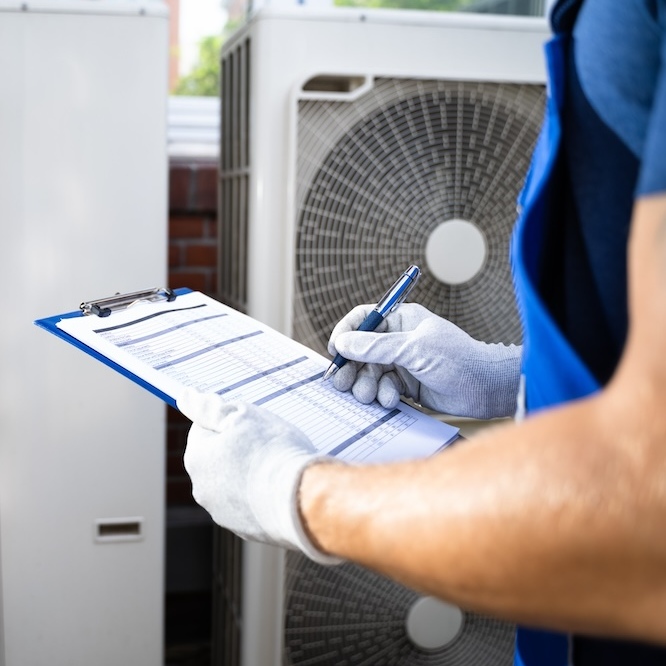
Stay Calm and Assess the Situation
A broken air conditioner during the sweltering summer months can be a homeowner’s worst nightmare. The discomfort and potential health risks associated with extreme heat make it crucial to address the issue promptly. This guide provides practical steps and advice on what you can do if your AC is broken, helping you stay cool while waiting for professional repairs.
When you realize your air conditioner is not working, it’s important to stay calm and assess the situation. Panic can lead to hasty decisions that might worsen the problem. Begin by identifying any obvious signs of malfunction, such as unusual noises, leaks, or a complete lack of cool air. This initial assessment will help you determine the best course of action and provide accurate information to your HVAC technician.
Check the Thermostat Settings
Sometimes, the problem may be as simple as incorrect thermostat settings. Ensure that your thermostat is set to the cooling mode and that the temperature is set lower than the current room temperature. Also, check if the thermostat’s batteries need replacement. A malfunctioning thermostat can often be the cause of an AC system failure, and correcting the settings or replacing batteries might solve the issue without the need for professional intervention.
Inspect the Circuit Breaker
Power issues are a common cause of air conditioner malfunctions. Check your home’s circuit breaker to see if the AC unit’s circuit has tripped. If it has, reset the breaker and see if the air conditioner starts working again. If the breaker trips repeatedly, it could indicate a more serious electrical problem, and you should call an HVAC technician to inspect the system.
Clean or Replace the Air Filters
Dirty or clogged air filters can significantly affect your air conditioner’s performance. When the airflow is restricted, the system can overheat and shut down. Inspect the air filters and clean or replace them if they appear dirty. Regularly changing the air filters, typically every 1-3 months, can prevent many common AC issues and improve the overall efficiency of your system.
Clear Debris Around the Outdoor Unit
The outdoor unit of your air conditioner needs proper airflow to function correctly. Debris such as leaves, grass, and dirt can accumulate around the unit, obstructing airflow and causing the system to overheat. Ensure that the area around the outdoor unit is clear of debris, and clean the unit’s fins with a gentle stream of water if they appear dirty. Keeping the outdoor unit clean and unobstructed is crucial for optimal performance.
Check for Refrigerant Leaks
Low refrigerant levels can cause your AC to blow warm air instead of cool. If you suspect a refrigerant leak, look for signs such as ice buildup on the refrigerant lines, hissing noises, or a noticeable decrease in cooling efficiency. While adding refrigerant is not a DIY task and should be handled by a professional, identifying a potential leak can help expedite the repair process once the technician arrives.
Inspect the Condensate Drain Line
A clogged condensate drain line can cause water to back up and potentially shut down your air conditioner. Locate the condensate drain line, typically near the indoor air handler, and check if it’s clogged. You can use a wet/dry vacuum to clear minor clogs. Regular maintenance of the condensate drain line can prevent water damage and improve the efficiency of your AC system.
Utilize Fans and Dehumidifiers
While waiting for your air conditioner to be repaired, use fans and dehumidifiers to help maintain a comfortable indoor environment. Ceiling fans, portable fans, and box fans can circulate air and create a cooling effect. Dehumidifiers can reduce humidity levels, making the air feel cooler and more comfortable. These devices can provide temporary relief until your AC is back in working order.
Avoid Heat-Generating Activities
To keep your home as cool as possible, avoid activities that generate heat, such as cooking, using the oven, or running the dishwasher during the hottest parts of the day. Instead, opt for meals that don’t require cooking or use a microwave. Additionally, keep lights and electronic devices turned off when not in use, as they can also contribute to heat buildup.
Contact a Professional HVAC Technician
If you’ve gone through these troubleshooting steps and your AC is still not working, it’s time to call a professional HVAC technician. Describe the problem in detail and mention any troubleshooting steps you’ve already taken. This information can help the technician diagnose and fix the issue more efficiently. Regular maintenance by a professional can prevent many common problems and extend the lifespan of your air conditioning system.
Prevent Future Breakdowns with Regular Maintenance
Preventive maintenance is key to avoiding unexpected AC breakdowns. Schedule regular maintenance appointments with a qualified HVAC technician to ensure your system is in top condition. Regular maintenance includes cleaning components, checking refrigerant levels, inspecting electrical connections, and more. Investing in routine maintenance can save you money in the long run by preventing costly repairs and improving system efficiency.
Conclusion: Be Prepared and Stay Cool
Dealing with a broken air conditioner can be stressful, but knowing what steps to take can help you manage the situation effectively. By staying calm, performing basic troubleshooting, and seeking professional help when needed, you can minimize discomfort and ensure a quick resolution. Remember, regular maintenance is crucial for preventing future breakdowns and keeping your AC system running smoothly. At Aire-Rite Heating & Air Conditioning, Inc., we’re here to assist with all your air conditioning needs, providing reliable repairs and maintenance to keep you cool and comfortable.
If you need an emergency air conditioner repair in Riverside, CA, please call us today at (951) 336-1541 and we will happily schedule you.
